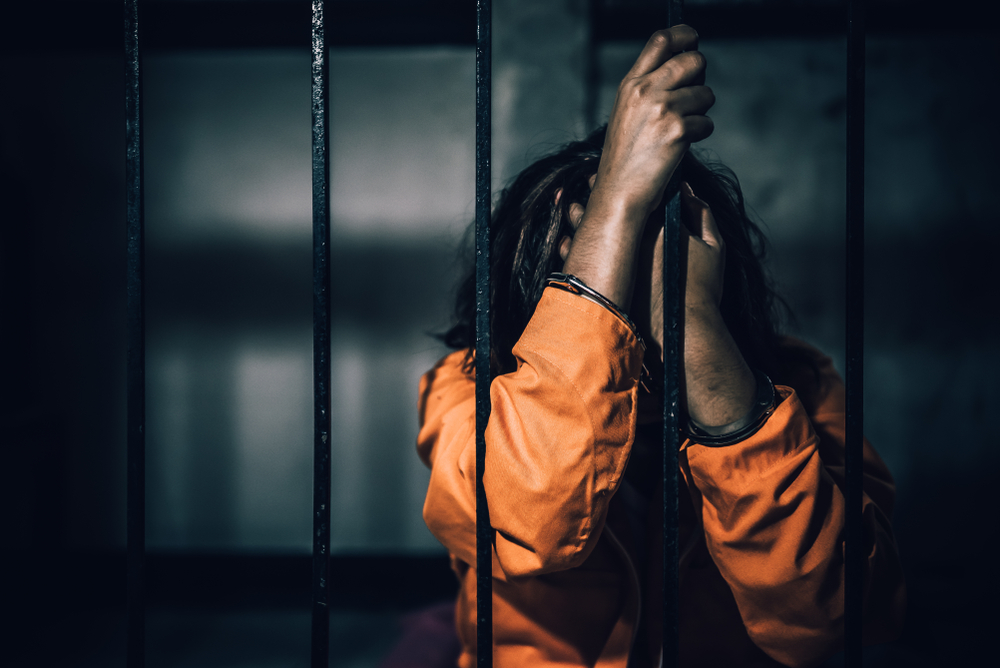The American criminal justice system has a problem with teenagers, and Johnetta Carr’s story proves it in the most brutal way possible. At 16, she was railroaded into a murder conviction based on fabricated evidence and coercive police tactics. Now, nearly two decades later, she’s finally tasted something resembling justice — a $2.9 million settlement that acknowledges what should have been obvious from the start: she was innocent.
But money can’t give back the years stolen from a teenager who should have been worried about prom dates and college applications instead of navigating the hellscape of juvenile detention centers and adult prisons.
The murder that changed everything
In October 2005 in Louisville, Ky., Planes Adolphe, a Haitian immigrant working as a cab driver, was found dead outside his apartment building. The scene was disturbing — his hands and feet bound, strangled with an electrical cord, his phone and wallet missing. His abandoned taxi sat nearby like a monument to senseless violence.
What happened next reveals everything wrong with how police investigate crimes, especially when young people become suspects. Instead of following evidence, detectives seemed to follow hunches, biases and a disturbing willingness to manufacture the case they wanted rather than pursue the truth.
Carr was dating Adolphe at the time, making her an obvious person to question. But questioning became targeting, and targeting became framing. Despite having multiple witnesses who confirmed she was at a sleepover during the murder, despite zero physical evidence connecting her to the crime, despite no DNA linking her to the scene, police decided she was their killer.
When interrogation becomes torture
The tactics used against Carr during questioning read like a manual on how not to interview a minor. Aggressive questioning sessions. Threats. Derogatory comments designed to break down a teenager’s resistance. The kind of psychological pressure that would make most adults crack, applied to a 16-year-old girl.
But Carr didn’t confess because there was nothing to confess to. So detectives allegedly did something worse — they manufactured confessions from others. Jailhouse informants later admitted they were coached to lie about Carr supposedly admitting guilt. Witnesses were pressured to change their stories. Evidence was twisted to fit a predetermined narrative.
This wasn’t police work; it was fiction writing with real-world consequences.
The system fails spectacularly
By April 2006, Carr found herself indicted for murder based on this house of cards evidence. She spent two years in juvenile detention before accepting an Alford plea in 2008 — a legal maneuver that allows defendants to plead guilty without admitting actual guilt. It’s often the only option for people trapped in a system more interested in closing cases than finding truth.
The plea deal handed her a 20-year sentence. She was released on parole in December 2009 but remained under the system’s thumb until June 2018. More than 12 years of her life sacrificed to incompetent police work and a justice system that treats Black teenagers as disposable.
Consider what was stolen: her teenage years, her early 20s, the chance to attend college without the cloud of a murder conviction, relationships, career opportunities, simple freedom. The psychological toll of being labeled a killer for a crime she didn’t commit is incalculable.
Fighting back from the abyss
Carr’s path to exoneration wasn’t quick or easy. It took until December 2019 for Kentucky Gov. Matt Bevin to grant her a pardon — recognition that the conviction was fundamentally flawed. But a pardon isn’t enough when systemic failures destroy someone’s life.
She filed a federal lawsuit against Louisville, Jefferson County and the detectives who allegedly framed her, claiming constitutional violations and prosecutorial misconduct. The initial lawsuit was dismissed in July 2021, because apparently ruining an innocent teenager‘s life isn’t grounds for legal action in some interpretations of justice.
But Carr appealed, and in June 2022, a federal court reinstated her case. The recent $2.9 million settlement represents more than financial compensation — it’s an admission that the system catastrophically failed.
The bigger picture
Carr’s case exposes uncomfortable truths about criminal justice in America. Young people, especially young people of color, face interrogation tactics that would be considered torture in other contexts. False confessions are manufactured through psychological pressure. Evidence is manipulated to support predetermined conclusions rather than reveal truth.
Kentucky currently offers no compensation for exonerees, meaning people like Carr must fight for years just to receive acknowledgment of wrongdoing. A recent legislative proposal would provide $65,000 for each year of wrongful imprisonment and $32,500 for each year on parole, plus education benefits.
It’s a start, but it doesn’t address the root problems that create wrongful convictions in the first place.
Justice delayed, never denied
Carr has become an advocate for criminal justice reform, using her experience to highlight the vulnerabilities young people face in the system. Her story should be required reading for anyone who believes the justice system works fairly for everyone.
The $2.9 million settlement closes one chapter of this nightmare, but it raises bigger questions about accountability, reform and preventing future injustices. How many other teenagers are sitting in cells right now for crimes they didn’t commit? How many police departments are still using coercive tactics to close cases regardless of guilt or innocence?
Carr’s victory is personal justice hard-won after nearly two decades of fighting. But it’s also a reminder that the system capable of destroying an innocent teenager’s life is still operating, still making the same mistakes, still prioritizing conviction rates over truth.
Real justice would ensure this never happens again. Until then, stories like Carr’s serve as both inspiration for the wrongfully accused and indictment of a system that remains fundamentally broken.















